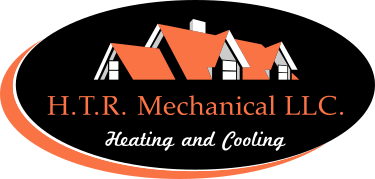How to: Choose the Right Air Filter for Your Home
Your HVAC system works hard to keep your home comfortable year-round. But there’s one small component that plays a big role in both system performance and indoor air quality, your air filter. Choosing the right air filter can improve your home’s air quality, extend your HVAC system’s lifespan, and help you breathe easier.
This guide will walk you through everything you need to know about selecting the perfect air filter for your home, from understanding MERV ratings to proper maintenance schedules.
Understanding MERV Ratings: Your Key to Better Filtration
MERV stands for Minimum Efficiency Reporting Value, and it’s the industry standard for measuring how well an air filter captures particles. Developed by the American Society of Heating, Refrigerating, and Air Conditioning Engineers (ASHRAE), MERV ratings range from 1 to 16 for residential filters.
Here's how the MERV scale works:
MERV 1-4
Basic filtration that captures large particles like lint and dust. These filters offer minimal protection but allow maximum airflow.
MERV 5-8
Captures larger particles including pollen, dust mites, and mold spores. MERV 8 filters are often recommended as a safe choice for most residential systems.
MERV 9-12
Provides enhanced filtration for smaller particles, including pet dander, bacteria, and some fungi. MERV 11 filters begin capturing allergen-sized particles effectively.
MERV 13-16
High-efficiency filtration that captures very small particles including smoke, bacteria, and even some viruses. MERV 13 is typically the highest rating recommended for most residential systems.
The higher the MERV rating, the more particles the filter captures, but it also restricts airflow more. Finding the right balance is crucial for your system’s performance.

Types of Air Filters: Finding Your Perfect Match

Disposable Fiberglass Filters
These basic filters cost just a few dollars each and capture only the largest particles like debris, dust, and lint. While budget-friendly, they offer minimal air quality benefits and need frequent replacement.

Pleated Filters
Made from folded filter media, pleated filters offer significantly better particle capture than fiberglass options. They can trap both large and small particles, including dust mites, pollen, and mold spores. These filters typically range from MERV 8 to MERV 13.

Electrostatic Filters
These filters use electrically charged fibers to attract and capture particles. Available in both disposable and washable versions, they're particularly effective at capturing smaller particles.

HEPA Filters
While HEPA filters offer exceptional filtration (99.97% of particles 0.3 microns or larger), they're typically too restrictive for most residential HVAC systems. They're more commonly found in standalone air purifiers.
Choosing the Right Filter for Your Needs
Consider Your Family's Health Needs
If anyone in your household has allergies, asthma, or other respiratory conditions, choose a filter with at least a MERV 11 rating. These filters effectively capture allergens like pollen, pet dander, and dust mites.
For households with pets, higher MERV ratings help capture pet dander and hair that can circulate through your system.
Factor in Your HVAC System

1-inch filters
Many residential systems use 1-inch thick filters. While convenient, high MERV ratings in this thickness can restrict airflow in some systems. MERV 8 is often recommended as a safe option that provides good filtration without compromising system performance.

4-inch filters
These thicker filters can handle higher MERV ratings without restricting airflow, thanks to their increased surface area. If your system can accommodate them, a MERV 13 filter in 4-inch thickness provides excellent air quality benefits.
Environmental Considerations
If you live in an area with high pollution, wildfire risk, or lots of pollen, consider higher MERV ratings to help filter these outdoor contaminants before they circulate in your home.
Proper Filter Maintenance: Maximizing Performance and Lifespan
Replacement Schedule
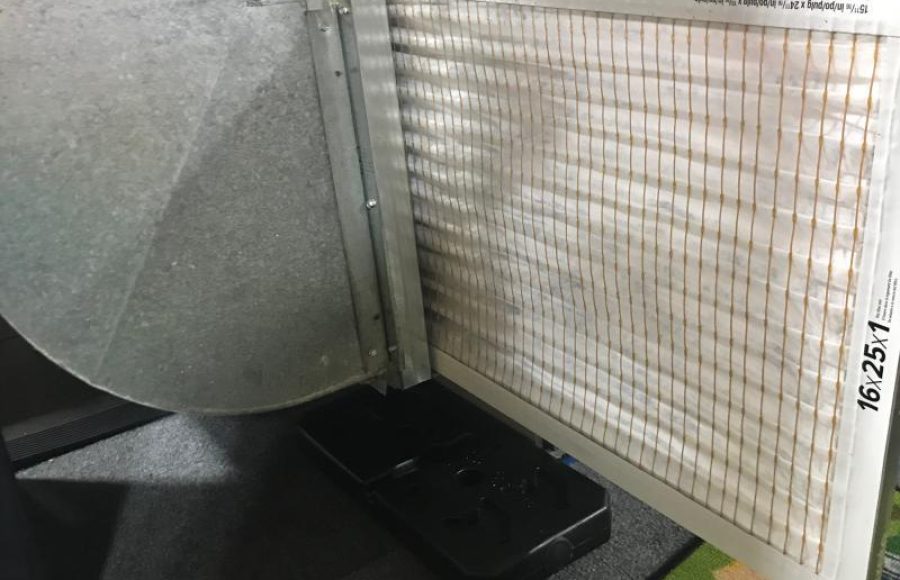
1-inch filters
Replace every 1-3 months, depending on usage and environmental factors.
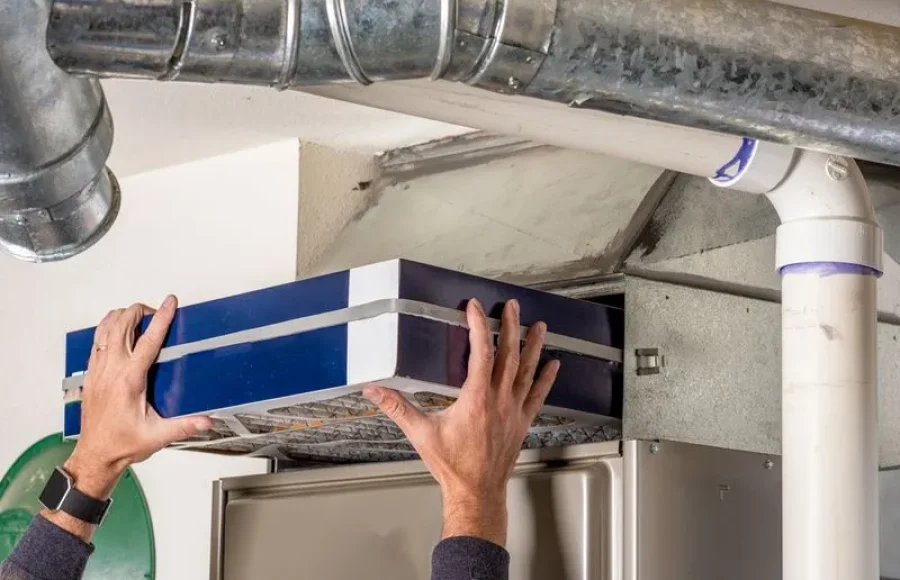
4-inch filters
Can typically last 6-12 months, though you should check them regularly.
Signs It's Time to Change Your Filter
- Visible dirt and debris buildup
- Reduced airflow from vents
- Increased dust around your home
- Higher energy bills
- The filter no longer lies flat in its housing
Tips for Extending Filter Life
- Keep your home clean to reduce the amount of debris entering your system
- Use higher-quality filters that can capture more particles before becoming clogged
- Check filters monthly, even if they’re rated to last longer
- Ensure proper installation with arrows pointing in the direction of airflow
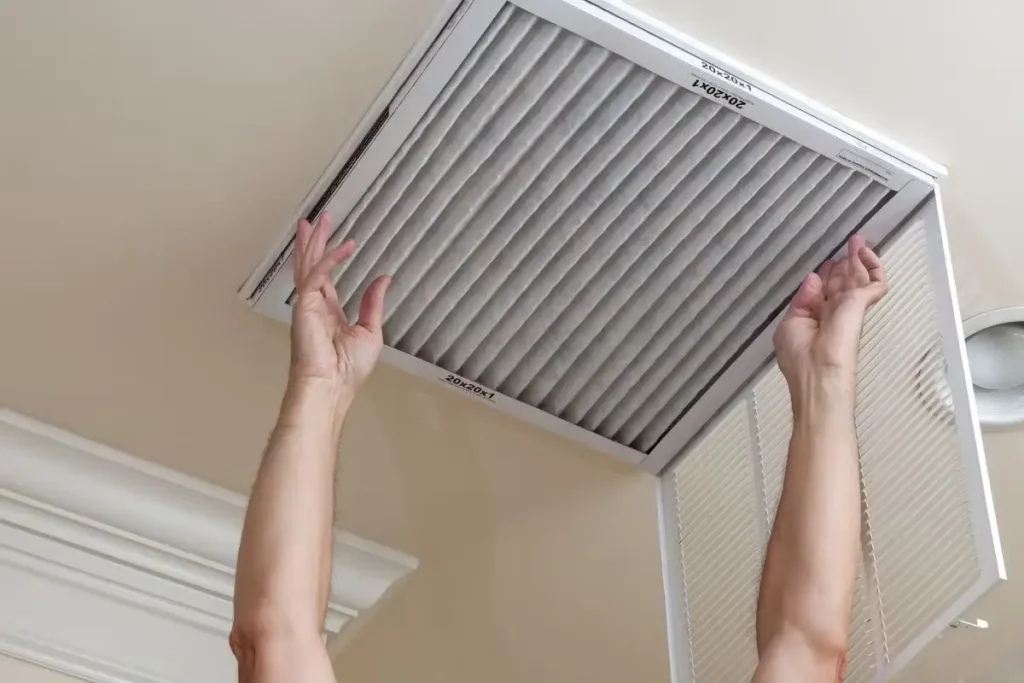
Making the Smart Choice for Your Home
The right air filter balances effective particle capture with proper airflow for your HVAC system. For most homes, a MERV 8 pleated filter provides excellent value and performance. If you have specific air quality concerns or a system that can handle higher filtration, consider upgrading to MERV 11 or MERV 13.
Remember that the most expensive filter isn’t always the best choice for your system. Consider your family’s health needs, your HVAC system’s requirements, and your local environment when making your selection.
Regular filter maintenance is just as important as choosing the right filter. A clean, properly-rated filter will keep your HVAC system running efficiently while providing cleaner air for your family to breathe.
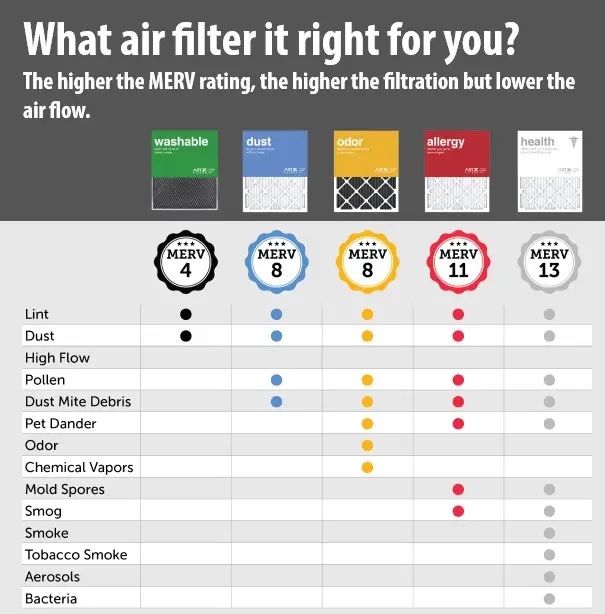
Contact Your Local HVAC Service Experts
Service Area:
Bensalem, Bristol, Doylestown, Feasterville, Glenside, Horsham, Langhorne, Levittown, Morrisville, Newtown, Southampton, Warminster, Yardley, greater Bucks County, and Montgomery County
Phone:
(267)798-5005
E-mail:
office@htrmechanical.com
Working Hours
Monday-Friday: 7AM – 5PM;
Saturday-Sunday: By Appointment
24/7 Emergency Service Availability
